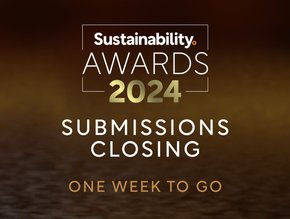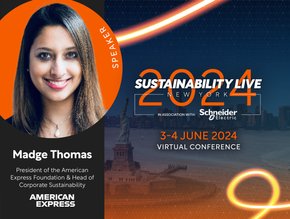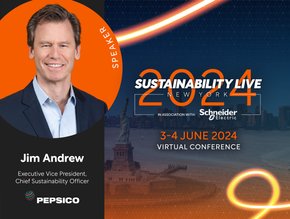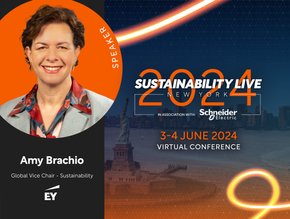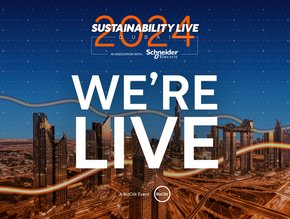The A-to-Z of COP28: priorities, challenges and expectations

As the world’s most important summit – the 28th edition of the UN Climate Conference – opens in Dubai, there is no doubting the high level of expectation the international community holds for COP28.
Taking place from November 30 to December 12, and convening 70,000 participants from heads of state to climate envoys, business leaders to lobbyists, the two-week-long climate conference comes weeks after a UN report said greenhouse gases in the atmosphere hit a record high in 2022 – while 2023 is on track to be the planet’ hottest year on record.
Progress by countries to cut their planet-warming emissions has been slow and inadequate, with a recent UN report warning that warming could reach 3 degrees Celsius above the pre-industrial average by the end of the century.
The urgency to take action – and to wean off fossil fuels has never been greater.
Claiming to be the most “inclusive” COP yet, Dr Sultan Al Jaber, Minister of Industry and Advanced Technology and COP-28 President-Designate, has been travelling around the world in the lead-up to the summit meeting global leaders and leaving no stone unturned when it comes to addressing the four pillars set out for COP28.
Those pillars are fast-tracking the energy transition, fixing climate finance, focusing on adaptation to protect lives and livelihoods, and underpinning everything with full inclusivity.
Along with the Global Stocktake, the first assessment since the Paris Climate Accord in 2015, the hot-ticket topics up for debate, discussion and (hopefully) consensus will especially focus on reining in fossil fuels and on climate financing.
Here, in our A-to-Z of COP28, we address the priorities and challenges, hopes and expectations of the conference.
A – Activism allowed
While in the UAE, unauthorised protests are not allowed, an agreement has been reached between the executive secretary of the UN Framework Convention and the UAE government to provide a space for “climate activists to assemble peacefully and make their voices heard”.
Located in the Green Zone at Expo City Dubai, the Voices for Action hub will provide a dedicated area to hold protests and demonstrations for climate action.
But activists have raised concerns, with Climate Justice Coalition lead spokesperson Asad Rehman saying: “We are deeply concerned about people being detained and arrested.”
Among activists attending, the 25-year-old Ugandan founder of Africa-based Rise Up Movement, is perhaps most well-known. She will be attending various side events, including a discussion on climate-induced migration from the world’s most vulnerable nations.
B – Brazil is back
As the potential host of COP29 in 2024, all eyes will be on Brazil and their ambitious plans for climate action – with Brazil's President Luiz Inacio Lula da Silva believing Brazil’s return to green goals is set to steal the show at COP28.
Having largely delivered on his promise to curb the destruction of the Amazon rainforest, marking a pivot of predecessor Jair Bolsonaro’s policies, Lula is now heading to COP28 amid plenty of plaudits and armed with an ambitious new plan.
Since he took office for a third time in January, the veteran left leader has halved deforestation in its giant share of the Amazon versus last year (to the lowest level since 2018) and has pledged to eliminate illegal deforestation by 2030. Brazil is the world’s largest rainforest nation and contains some 60% of the Amazon jungle.
His recent successes give him substantial negotiating power and clout at the upcoming talks and according to the country’s top climate negotiator Andre Correa do Lago, Lula plans to use it as leverage to push for a loss and damage fund.
Brazil plans to propose the idea of a tropical forest conservation fund, where wealthy nations pay tropical forest countries for every hectare of preserved forest land. Brazil is among the nations vulnerable to climate risk, having experienced extreme weather including drought this year.
Different to most funds, this one wouldn’t value forest conservation in terms of carbon – as prevention of GHG is the goal, with value likely instead to be linked to the area of forest measured in hectares.
"It's a conceptual proposal with a view to create a fund to help conserve tropical forests around the world...in 80 countries," Correa do Lago said.

C – COP Controversy
The decision to hold the conference in the UAE and appoint the CEO of an oil company as President, has not been without criticism.
The appointment of an oil boss (Dr Sultan Al Jaber) as President of COP28 by the UAE, the world’s seventh-biggest oil producer, sparked a backlash from some climate activists who say Al Jaber’s role as ADNOC chief executive represents a clear conflict of interest with the COP28 position.
Teresa Anderson, global lead on climate justice at non-profit ActionAid said the UN Climate Summit was “increasingly being hijacked by those with opposing interests” and that the oil industry was trying to use COP summits as an “opportunity for greenwashing in a way that puts our planet’s future at risk”.
Others argue that oil giants must be at the negotiating table to deliver a practical solution – and that Al Jaber is uniquely positioned to bring about pragmatic solutions.
US Special Presidential Envoy for Climate, John Kerry, has called the UAE oil chief a “terrific choice”, arguing that you can’t tackle emissions without the fossil fuel companies in the room.
In the week leading up to COP28, more controversy arose when The Independent claimed to have seen leaked briefing documents prepared by the UAE’s COP28 team for meetings with foreign governments that revealed plans to discuss fossil fuels deals with 15 nations.
Al-Jaber has strongly denied the accusations of using the climate talks to strike fossil fuel deals for the UAE’s state-owned oil and gas company, saying: “These allegations are false, not true, incorrect, and not accurate. And it’s an attempt to undermine the work of the COP28 presidency.”
“Let me ask you a question: Do you think the UAE, or myself, will need the COP, or the COP presidency, to go and establish business deals or commercial relationships?"
But the latest controversy – and not one focused on the UAE, but the UK – with UK high-profile attendees to COP28, King Charles III, Prime Minister Rishi Sunak, and Foreign Secretary David Cameron, all taking separate private jets to the conference in Dubai, according to Downing Street.

D – Developing nations
When it comes to the COP28 agenda (the issues to negotiate and be decided on) there are 16 suggested additions, a record number for a COP.
Among these are several from the coalition called the Like-Minded Group of Developing Countries (LMDC). The Group, led by Senegal's government climate head Madeleine Diouf Sarr, is a 46-member negotiating bloc that includes China, India, Saudi Arabia, Bolivia, and many countries in Africa.
Their view is that rich countries should be providing more climate finance. It is estimated that US$2.4 trillion will be needed annually by 2030 to address climate change in emerging markets and developing economies.
Sarr and coalition argue that while the developing countries are home to more than 4% of the world’s population, they use just 1% of emissions, and should be compensated for damages received. (See Loss and Damage). They have proposed negotiations on doubling adaptation finance support from developed countries.
This view is backed by The Group of 77, a coalition of 77 developing countries and China that also holds that rich countries have a bigger responsibility to cut CO2 than poorer nations.
E – Energy efficiency
Energy efficiency is sure to be a hot topic, with the International Energy Agency’s (IEA) calling for a stronger policy on energy efficiency in 2024. This follows the release on the eve of COP28 of their Energy Efficiency 2023 report which shows that not enough progress is being made – revealing a slowing in global improvements in energy intensity.
IEA has said that doubling the rate of energy efficiency globally to at least a 4% energy intensity improvement each year up to 2030 is needed to put the world on track to reach net zero.
With this, Danish multinational Danfoss president and CEO Kim Fausing has called on governments at COP28 to commit to this doubling the rate, from 2% in 2022 to 4% in 2030.
He points to the need for much stronger policy packages of information, regulations and incentives and a tripling of global investment in energy efficiency and electrification as vital.
“We need to see direct action on energy efficiency from leaders at COP28 if we are to limit global warming to 1.5C. We have virtually no chance of meeting our future energy needs, and certainly no chance of achieving net zero by 2050 if we don’t radically rethink energy efficiency as a key tool to decarbonise society.”
Among the policy recommendations for leaders at COP28, to incentivise energy use during times of plentiful renewable energy with dynamic energy pricing, to make a plan for electrification, and to include flexibility solutions in energy policy at all levels.
F – Faith Pavilion
In a climate conference first, the Faith Pavilion takes to the Dubai stage at COP28 – and will convene more than 300 faith leaders, public figures and 70 leading faith-based organisations.
Hosted by the Muslim Council of Elders in collaboration with the COP28 Presidency, UNEP, and a coalition of faith partners, the pavilion has been designed as a “pioneering space to foster meaningful interfaith collaboration and engagement, with the goal of catalysing effective and ambitious climate action”.
The space will host dialogues and sessions promoting climate justice collaboration among religious and indigenous repreentatives, scientists, young people, and political leaders with leading speakers including Sri Sri Ravi Shankar and Jagadish Vaudev (popularly known as Sadhguru) – one of India's most powerful gurus.
The 87-year-old spiritual leader is founder of non-profit Isha Foundation, has an Instagram following of 11.1 million, a New York Times bestselling self-help book (Inner Engineering) and a celebrity following that includes Will Smith, Matthew McConaughey and Andrea Bocelli.
G - Global stocktake (GST)
COP28 is an important year for the Paris agreement. Signed in 2015, in Paris, countries agreed to mark each other’s homework every five years beginning in 2023. Referred to as the Global Stocktake, countries will for the first time assess how they are measuring up to the goals of the Paris Agreement., it will examine what has been achieved and what more needs to be done.
And this will form the basis for the next round of country pledges to cut emissions, due in 2025.
Even before the stocktake begins, the UN has said the world is way off track in keeping to the 1.5C goal and emissions that contribute to global warming must be slashed to stay on track.
H – Health Day
As health gains traction as a central motivator for climate action, COP28 will deliver the first official Health Day. In collaboration with the World Health Organisation and the Wellcome Trust and partners, the Health Day will focus on five key topics and feature a rollout of events.
Among topics to be addressed, how climate change affects our health, how ambitious emission reductions can save lives, how adapation and resilience can address the health impacts of climate change, mental health and climate change, and the role of development banks and financial institutions.
WHO and Wellcome Trust will also host the COP28 Health Pavilion, which will convene everyone from ministers to health professionals to business leaders. Discover the online course "Climate Change Negotiations and Health" which will be updated with content relevant specifically to the upcoming negotiations.
I – Inclusivity including Indigenous Peoples
Having a voice at COP has not always been easy, and Dr Al Sultan Al Jaber is keen to address that by making COP28 the most inclusive climate change conference yet – including a youth delegate programme, a pavilion for indigenous people, and higher numbers of regional and local leaders.
“We are inviting every segment of society to join us at COP28 – policy makers and passionate advocates, engineers and entrepreneurs,” said Dr Al Jaber.
The COP28 Presidency believes inclusivity is a critical enabler to achieving transformative progress across the climate agenda. Only by rising above our differences and working together can we raise our shared ambition and deliver progress to keep 1.5C within reach.”
As part of this inclusivity, the COP28 Presidency has announced new measures to enhance the effective participation of indigenous peoples and authentic visibility of Indigenous People-led solutions at COP28, among these financial support for Indigenous elders to attend the Conference and subsidised accommodations for 150 delegates from Indigenous organisations.
According to Razan Al Mubarak, UN Climate Change High-Level Champion for COP28, “Indigenous Peoples are one of the nine official constituencies – organisations which have the status of observers – in the UN Framework Convention on Climate Change. Still, their valuable perspectives remain underrepresented in multilateral climate processes, and they receive a very small share of the international funding for climate action.”
J – Just Transition
Many global leaders and especially those in lagging climate action countries across Asia are calling for a ‘just transition’. They are saying, ‘we can’t go green overnight’ and instead require a fair and affordable transition.
As chief negotiator for the world’s biggest oil exporter (Saudi Arabia), Khalid al-Mehaid will be faced with pressure at COP28 to support the accelerated phase-down of fossil fuels. Last month, during MENA Climate Week 2023 in Riyadh, Al-Mehadi said a one-size-fits-all approach will not work in the MENA region and the “the kind of energy transition narrative is not taking into account the priorities of the MENA region, let alone the Global South.”
This is likely to be an area of much debate at COP28, especially regarding the phasing out of fossil fuels. Take coal. Last week, Reuters reported that France and the US are planning to call for a halt to private financing for coal-based power plants during COP28 – but emerging nations like India will be unlikely to concede as they depend on coal to fuel their fast economic growth – with nearly three-quarters of electricity consumer in India produced using coal.
K – Kings
While King Charles III’s attendance to COP28 has grabbed all the headlines, there are a number of monarchs attending the conference, including from Tonga, Brunei and Jordan.
His Majesty King Charles III has confirmed he is attending COP28 at the UAE’s invitation, and upon the request of Prime Minister Rishi Sunak’s government – and is expected to deliver an opening address and attend a reception to launch a business and philanthropy forum.
An outspoken advocate of sustainable change, King Charles has dedicated much of his life’s work to championing the fight against climate change and biodiversity loss – and his ideas and actions over the decades are credited with paving the way for the birth of COP.
Among other monarchs attending this year, His Highness Shaikh Mohamed Bin Zayed Bin Sultan Al Nehayan, President of the UAE, His Majesty King Abdullah II ibn Al Hussein, King of Jordan, His Majesty King Tupou VI, King of Tonga, His Majesty Sultan Haji Hassanal Bolkiah, Sultan of Brunei Darussalam, His Highness Sheikh Tamim bin Hamad Al-Thani, Amir of the State

L - Loss and damage fund
Hopes for a result on loss and damage were reached on day one. In fact, COP28 made history on November 30, marking the first time a decision was adopted on the first day of a COP. And a major decision at that –with the approval of a loss and damage fund.
All parties have agreed to operationalise loss and damage, proving a monumental step towards delivering meaningful support for the world’s most vulnerable – those nations experiencing natural disasters and rising sea levels.
"This is evidence that we can deliver," COP28 President Al Jaber said as nations unanimously approved the deal.
This will involve setting up a fund under the auspices of the World Bank at first, able to disburse money to developing countries and funded by rich industrialised nations and emerging economies and fossil fuel producing countries, such as China, Gulf states and the COP28 host country, the UAE.
Funding the cost of climate damage has been a matter of much debate for some time. Since 2009 in fact – when promises were made by wealthier countries to deliver a US$100 billion funding goal per year by 2020. At COP27, an ambitious loss and damage fund was agreed, but had not been put into place until now. It is thought trillions of dollars is needed.
Dr Al Jaber has been travelling the world in the last six months, meeting with leaders of the most vulnerable nations when it comes to climate change and calling on donors to double adaptation finance by 2025. He also expressed the urgency for donor countries to honour their existing commitments, totalling US$100 billion.
Recently in conversation with Sustainability Magazine, Dr Renard Siew, one of ASEAN’s leading environmental activists and Head of Corporate Sustainability at Yinson Holdings Berhad, said he hopes developed nations “will fulfil and indeed enhance their commitments to climate finance and the Loss and Damage Fund – supporting developing countries (including Malaysia) in their efforts to mitigate and adapt to climate change”.
M - Methane
There is expected to be a major focus at COP28 on methane, an oft-overlooked greenhouse gas when it comes to cutting emissions.
Methane is responsible for 50% of global warming and is more destructive than C02 – 80 to 100 times more destructive within the first 20 years and then 20 times more destructive after that.
China has recently committed to include this potent greenhouse gas in its 2035 climate plans – and US Special Presidential Envoy for Climate John Kerry has said there are plans in place to include all greenhouse gases within the future reduction plans of each country.
“This year we’ll be adding a very important contribution with respect to methane, which will involve both oil and gas companies as well as countries,” Kerry said at a press briefing in the lead-up to COP28.
“We think it’s the easiest, quickest and cheapest way to start making gains against global warming. There will be a major focus on methane [reduction].”
The UAE is also expected to announce a commitment from major oil and gas companies to reduce methane leakage.
N – Nuclear power
It’s about time we had a serious discussion about the role of nuclear energy – and that starts with Net Zero Nuclear. The initiative is calling for governments and industry to triple global nuclear capacity to achieve carbon neutrality by 2050.
While nuclear has the ability to produce vast amounts of (almost) clean, reliable energy, safety concerns stemming from disasters such as Chernobyl and Fukushima have held the industry back. Could new technology such as nuclear fusion, and small modular reactors (SMRs) turn the tide for nuclear?
“We have no time to lose in delivering a realistic, proven approach to the clean energy transition. Through Net Zero Nuclear, we hope to facilitate the action our industry needs to grow,” says Dr Sama Bilbao y León, Director General, World Nuclear Association.
There will be a Net Zero Nuclear stand in the Blue Zone throughout COP28, a ‘major ministerial declaration on 2 December, and a flagship industry announcement on Energy Day (5 December).
O – Ocean
Ocean-based climate solutions could reduce the emissions gap by up to 35%, improve food security, produce clean energy, and secure local livelihoods and lands.
Searching for country commitments towards the 100% Sustainable Ocean Management goal, this event will promote the ‘blue ambition loop’ where the ocean plays a central part in the solution.
The high-level event Powering Ocean Breakthroughs Through Sustainable Ocean Planning takes place on 9 December, with both state and non-state stakeholders setting the agenda.
P - Phaseout / Phasedown
Discussions around the phasing out or down of fossil fuels (coal, oil, gas) at COP28 will central and are likely to get heated, given that burning fossil fuels is the main cause of global warmings and leaders must tackle it.
The UNFCC has repeatedly said phasing out fossil fuels was urgently needed for the world to meet it Paris Agreement commitments.
In the lead-up to COP28, there have been multiple calls by countries to either ‘phase out’ or ‘phase down’ fossil fuels – or to specify ‘unabated’ fossil fuels – and on day one of COP28, UN Secretary-General Antonio Guterres has called for complete ‘phaseout’ of fossil fuels.
Bringing this urgent call to COP28 is the High Ambition Coalition. Chaired by the Marshall Islands and including Vanuatu, Costa Rica, the US and the EU, this group pushes for more ambitious emissions targets and policies, including halting new coal plants.
The pressure is on the UAE to reach a consensus on the issue. Al Jaber, COP28 President-Designate has stated that the phase-down of fossil fuels is “inevitable” and “essential” but also acknowledges the renewable energy sector needs to grow at a much faster pace.
Majid al-Suwaidi, the director-general of COP28 has said this issue would make for “hard conversations” and will be hotly debated in Dubai.
For countries like China (the biggest user of coal) and India (where 74% of energy produced is via cola), phase-out is complicated, but even for more developed countries like the UK. Over the past few months, the UK government has issued more than 100 new licences for oil and gas exploitation in the North Sea.
Climate finance discussions are key to consensus on phasing out of fossil fuels. Analysts at S&P Global Commodity insights have said that the language and deployment of climate finance would be key to negotiations around the future of fossil fuels.

Q – Q Coffee
Need a pick-me-ups while visiting COP28, head to eco-minded coffee enthusiasts Q Coffee, Expo City Dubai's most exciting new coffee spot. Far more than just a coffee shop, the concept is a part of Bloomberg Philanthropies' Women's Economic Development programme in partnership with Sustainable Growers, which has contributed to providing financial independence to over 724,000 women, impacting 2.8 million of their children. Q Coffee Cafe‚ is a celebration of Rwandan culture, heritage, and coffee, it also offers tastings and workshops in coffee making and fair-trade practices.
R – Renewables
Fast-tracking the transition to clean energy is one of the main pillars of COP28, in the phase-out of fossil fuels that are driving climate change.
Al Jaber has outlined a transition plan to triple renewables and double hydrogen production by 2030, with oil and gas companies urged to diversify into these opportunities.
“We need to use every emission-busting tool available, including nuclear, battery storage and carbon capture and removal technologies, especially for the hardest to abate sectors,” said Dr Al Jaber.
According to the International Renewable Energy Agency (IRENA), tripling renewable energy and doubling energy efficiency will take an annual average investment of US$1.3 trillion for renewable power generation by 2030, compared to US$486 billion in 2022.
S - Solar energy
Aligning with the core objectives of COP28, and emphasising the transition to renewable energy, Expo City Dubai – where COP28 is taking place – is being powered entirely with renewable energy.
DEWA is supply solar energy to the entire site through International Renewable Energy Certificates (I-REC) sourced from the Mohammed Bin Rashid Al Maktoum Solar Park.
With the current clean energy capacity of 2,627 megawatts and plans for expansion, the Mohammed Bin Rashid Al Maktoum Solar Park aims to reach 5,000 megawatts by 2030, contributing to a substantial annual reduction in carbon emissions.

T – Technology
Many of the world’s leading technology and tech consulting companies are expected to convene at COP28, both as supporters and innovation or pathway partners, many in booths within the Green Zone and Innovation Zone and many hosting sessions. Among tech companies, these will be hosting sessions and launching new innovations:
Microsoft will take a booth along with 20 of its global partners, to showcase how its Microsoft Cloud for Sustainability suite is building AI into many of its products and solutions to help customers make more impactful decisions toward net zero goals.
The company will also unveil how its AI for Earth and AI for Good programmes are helping to place the latest AI technologies into the hands of change-makers globally – and will further showcase its just-launched playbook – a comprehensive strategy for governments, businesses and civil society organisation to leverage AI in propelling to a net-zero, climate-resilient and nature-positive future.
As a sponsor of COP28, IBM will also be there, showcasing how technology and consulting can enable business, society and government to accelerate progress toward sustainability goals.
"Sustainability is one of the biggest challenges of our lifetime, and both technology and partnerships will be key to driving future progress," say Jonathan Adashek, SVP, Marketing and Communications, IBM. "AI innovations like IBM's watsonx are already available to help organisations build AI to drive sustainability and efficiency."
And Tencent, the world-leading internet and technology company, will be launching its climate community platform, TanLIVE, globally at COP28 – in collaboration with the Innovate for Climate Tech coalition.
“By making the platform accessible worldwide... we hope to accelerate the speed and scale of frontier technologies and connect like-minded individuals and organisations who are all working for the same goal: a greener, cleaner, and more sustainable future," said Dr. Hao Xu, Vice President of Tencent Sustainable Social Value (SSV) and Head of Tencent Carbon Neutrality Lab.
U – Urgency
At no other time has there been such urgent need for action by all stakeholders.
2023 is on track to be the hottest year, while the past eight years were the eight warmest, on record globally.
A recent UN report said greenhouse gases in the atmosphere hit a record high in 2022. Based on countries’ current climate plans, the report says, global carbon emissions by 2030 will be cut by only 2% compared with 2019 levels, far short of the 43% fall needed to limit warming to 1.5 degrees Celius since pre-dindustrial levels.
A report from the World Meterological Organisation in May also found that with current trends, the world may temporarily breach the 1.5 degrees Celsius target in 2027.
In visiting Antartica ahead of COP28, UN Secretary General Antonio Guterres referred to it as a “sleeping giant” that was now “awoken by climate chaos”. Antartica sea ice is at an all-time low with the latest figures showing it is 1.5 million sqkm smaller than the average for the time of year.
V – Venture capital
Climate Venture Capital leaders will examine the current VC landscape and ask the all-important question: Are we moving fast enough?
VC plays an essential role in scaling climate solutions and turning hard cash and good intentions into real-world solutions.
Check out this panel discussion organised by VentureSouq and Global Ventures on 4 December.
W – World Bank
The World Bank Group will be out in force at COP28, as it doubles down on climate action, part of its new vision to end poverty on a liveable planet. From COP28, the Group will deliver live programming focused on climate solutions, emissions reduction, energy transition, adaptation and climate finance – all while exploring the link between climate change and development. Among sessions, a fireside with Ajay Bhanga, President of the World Bank, a discussion on adapting to climate change in fragile and conflict setting, and how DFI can foster private investment in sustainable infrastructure.

X – Xie Zhenhua, China’s climate envoy
The equivalent of John Kerry, diplomat veteran Xie Zhenhua will lead discussions and negotiations for China at COP28.
Given that China leads the world in both dirty energy (they are the world’s biggest greenhouse gas emitter) and clean energy (they are home to half the world’s operating wind and solar capacity), they will be one to watch.
Xie has previously said that a fossil fuel ‘phase-out’ is “unrealistic” and that wealthy developed countries like the US, the biggest historical CO2 emitter, should move first and fastest in climate policy and finance.
Pre-COP28, Xie met with his US counterpart, John Kerry, for talks and China has made commitments, which include reducing emissions from its power sector this decade and curbing all greenhouse gases.
These two top polluters will continue these discussions in Dubai, according to Kerry, and will “pursue efforts to triple renewable energy capacity globally by 2030 to accelerate the substitution of coal, oil and gas.

Y – Youth-led solutions
The UNFCCC Global Youth Statement representing voices from 149 countries calls for youth inclusion in climate governance.
COP27 in Sharm-El-Sheikh was a milestone for young voices with the first-ever Youth Pavilion, recognising youth-led solutions.
And now, in an effort to expand youth participation in climate change policy-making, COP28 is building on this mission.
In a bid to give an elevated voice to youth and ensure their perspectives are heard, especially those in climate-vulnerable countries and from under-represented groups, the COP28 Presidency launched a new global initiative, sponsoring 100 young people from the least developed countries and minority groups to attend Cop28.
Central to this will be the World Economic Forum’s Global Shapers Community, made up of changemakers spanning more than 500 cities. Through localised projects, this community has impacted on over 2 million lives worldwide, with 600 projects dedicated to preserving our planet.
More than 100 Shapers will take to the Youth Pavilion to advocate for inclusion solutions in Dubai – tackling crucial themes such as energy, biodiversity, health and technological innovated.
Z – Zones
Finally – for those who are attending COP28, it's all about the Zones. The UN Climate Summit will have two zones. The Blue Zone is open only to UN-accredited participants and is where the formal negotiations will take place – among these, the World Climate Action Summit, the Global Climate Action Hub, presidency events, and multiple panel and roundtable discussions.
The Green Zone is an open space for the public to promote dialogue and awareness around climate action.

